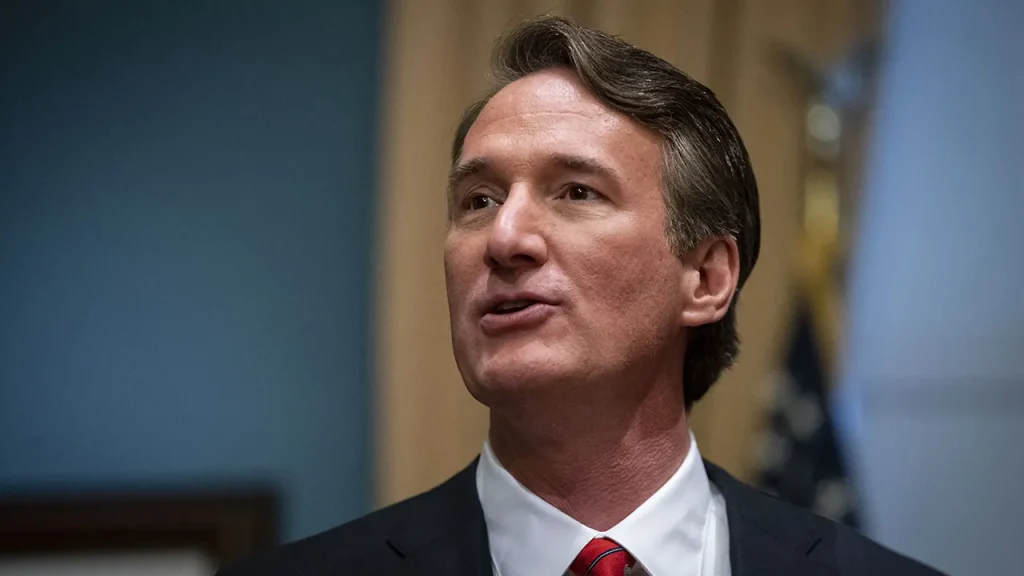Virginia budget negotiators and Gov. Glenn Youngkin have reached a compromise on the next two-year state spending plan that includes 3% raises for state employees and teachers without raising taxes and risking a potential veto by Youngkin. The deal, which awaits approval by lawmakers during a special session scheduled for Monday, includes additional state revenues to fund Democratic spending priorities such as raises for teachers and state employees, as well as measures to restrain increases in tuition for state universities and colleges, help individuals with mental illness, and cover increased costs to Virginia’s Medicaid program. The $188 billion budget will not expand Virginia’s sales tax to digital services as originally proposed by Youngkin, nor does it include a requirement for Virginia to rejoin the Regional Greenhouse Gas Initiative. The budget deal also excludes electronic skill games, prompting some convenience stores to stop selling Virginia Lottery tickets until an agreement is reached on the issue.
Details of the new spending plan will be made public on Saturday, but House Appropriations Chairman Luke Torian has confirmed that all spending priorities are intact in the agreement reached between budget leaders and Youngkin. The compromise comes after Youngkin’s initial proposals to cut income tax rates and raise the sales tax were rejected by Democrats, leading to a stalemate that threatened the state’s ability to operate on July 1 for the first time in Virginia history. However, the agreed-upon budget deal does not include these tax provisions, allowing for a smoother approval process during the upcoming special session. On the issue of digital services taxation, Youngkin’s push to close the “big tech loophole” by levying taxes on video streaming and audio services was also left out of the compromise.
Youngkin had also sought to withdraw Virginia from the Regional Greenhouse Gas Initiative due to concerns about the costs of surcharges on carbon pollution affecting consumers’ electric bills. The agreement reached with budget negotiators does not include this requirement, giving Youngkin a victory in his efforts to keep Virginia out of the multistate compact. Additionally, the budget deal does not include provisions for electronic skill games, prompting the VA Merchants and Amusement Coalition to take action by announcing that participating convenience stores will stop selling Virginia Lottery tickets until an agreement is reached on the issue. Ultimately, the compromise reached between budget negotiators and Youngkin will now undergo review by members of the House and Senate for final approval, with Democrats holding a slim majority in each chamber.
Youngkin’s press secretary, Christian Martinez, expressed Youngkin’s eagerness to deliver on collective priorities for all Virginians through the new spending plan. Despite the lack of specifics available to lawmakers and the public until Saturday, the agreement reached between budget leaders and Youngkin is a significant step towards finalizing the next two-year state spending plan. The inclusion of 3% raises for state employees and teachers, as well as funding for various Democratic spending priorities, demonstrates a collaborative effort to address key concerns while avoiding potential conflicts over tax proposals and environmental initiatives that were at odds with Youngkin’s priorities. The compromise now sets the stage for a special session where lawmakers will have the opportunity to review and approve the new budget plan, ensuring that Virginia’s financial commitments are met without raising taxes or risking a veto from the governor.


